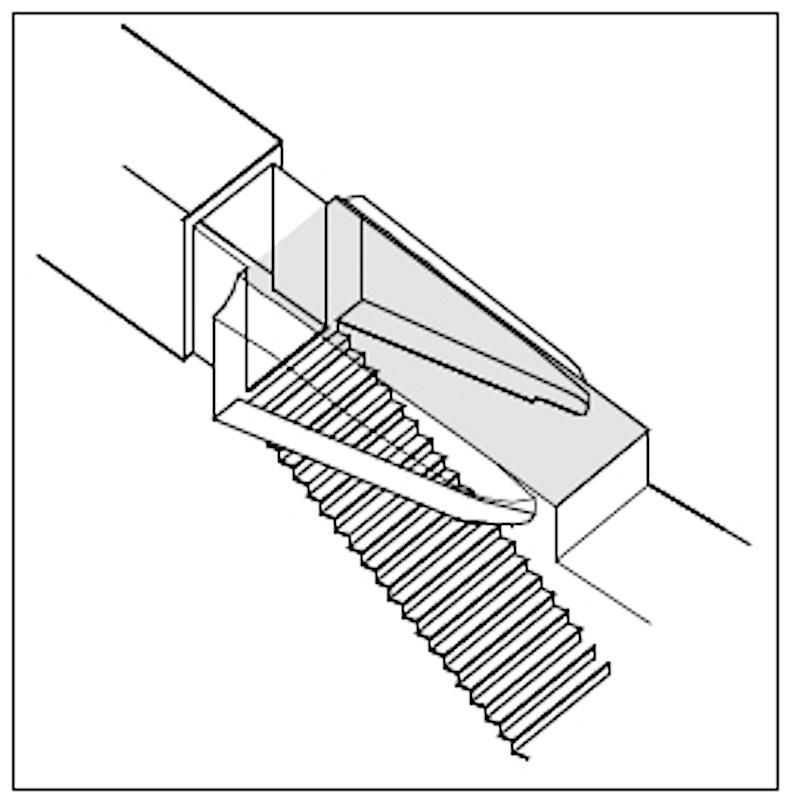Terminology
A handy guide on how to understand and identify the different components of a tomb. To read further about tomb components, check our article Anatomy of a Tomb.
Walls
When referring to different walls of a chamber, your back is to the gate and:
- The front wall is behind you
- The rear wall is ahead of you
- The left wall is to your left
- The right wall is to your right
When referring to different parts of the wall, assume you are facing the wall.
Walls in split-level chambers:
(Parts of two-tiered chambers are described as the ‘upper level’ and the ‘lower level’).
(A) Burial chamber J1, upper level, front wall, right part.
(B) Burial chamber J1, lower level, front wall, left part.
(C) Burial chamber J1, upper level, right wall, left part.
(D) Burial chamber J1, lower level, left wall.
(E) Burial chamber J1, upper level, left wall, center part.
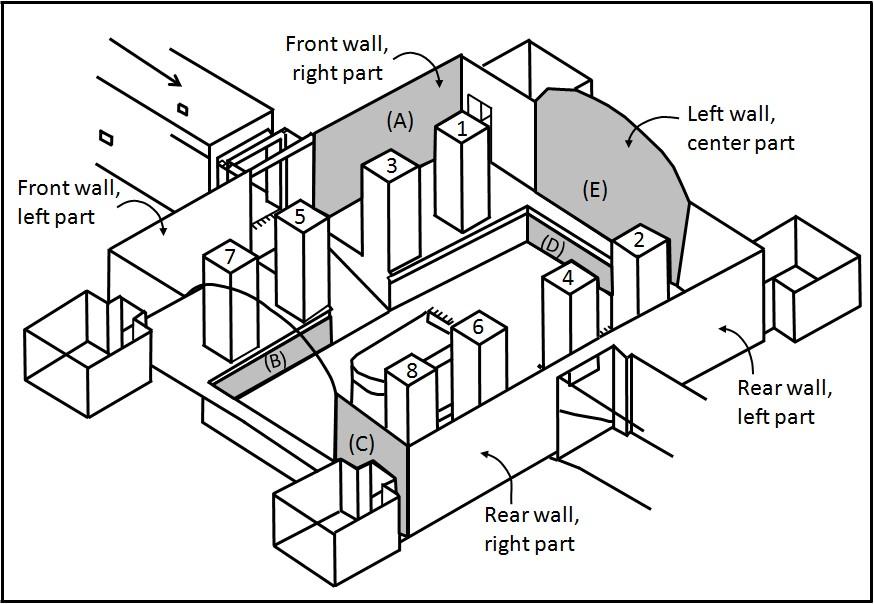
Ceiling
The ceiling consists of: front part, rear part, left part, right part.
Pillars
The pillars are numbered for reference from front to back and left to right. The direction of the face being described and the number of the pillar are also noted.
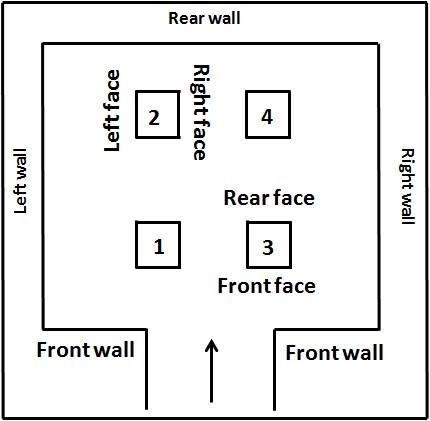
Gates
The parts of gates are referred to as shown.
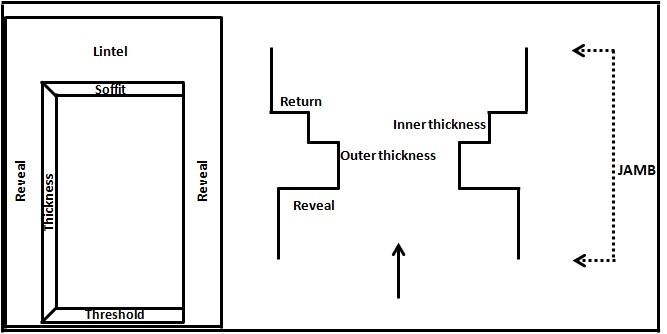
Pilasters
Pilasters are pillars that are engaged in a wall. They are numbered separately from regular pillars in the same chamber. As with pillars, they are numbered from front to back and left to right. The decoration is also noted in the same way as for pillars, using the direction of the face.
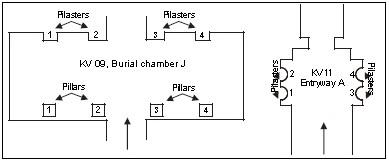
Burial Chambers Levels
Burial chambers can consist of different floor levels, which are referred to as the upper and lower levels.
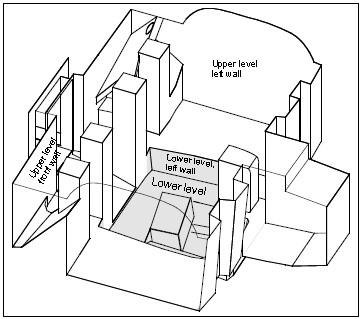
Benches
A raised area at the perimeter of a chamber at a higher level than the floor level (or higher than the floor level of the upper part in a split level chamber).
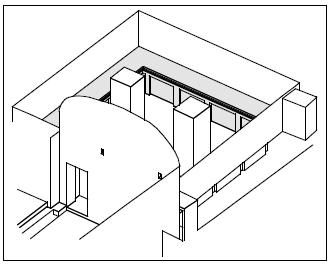
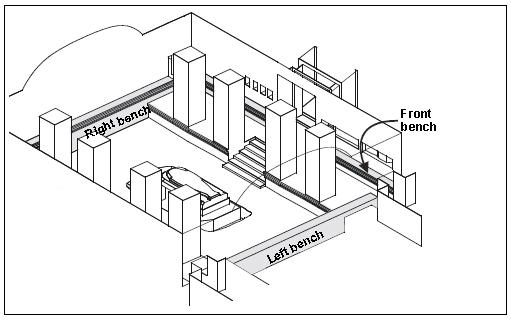
Ceilings/Recesses
Where the top of the recesses is flush with the ceiling, the ceiling includes the bits over the recesses. In situations where the recesses have their own architecturally separate top surfaces, they should be highlighted as part of the recess, not the ceiling.
